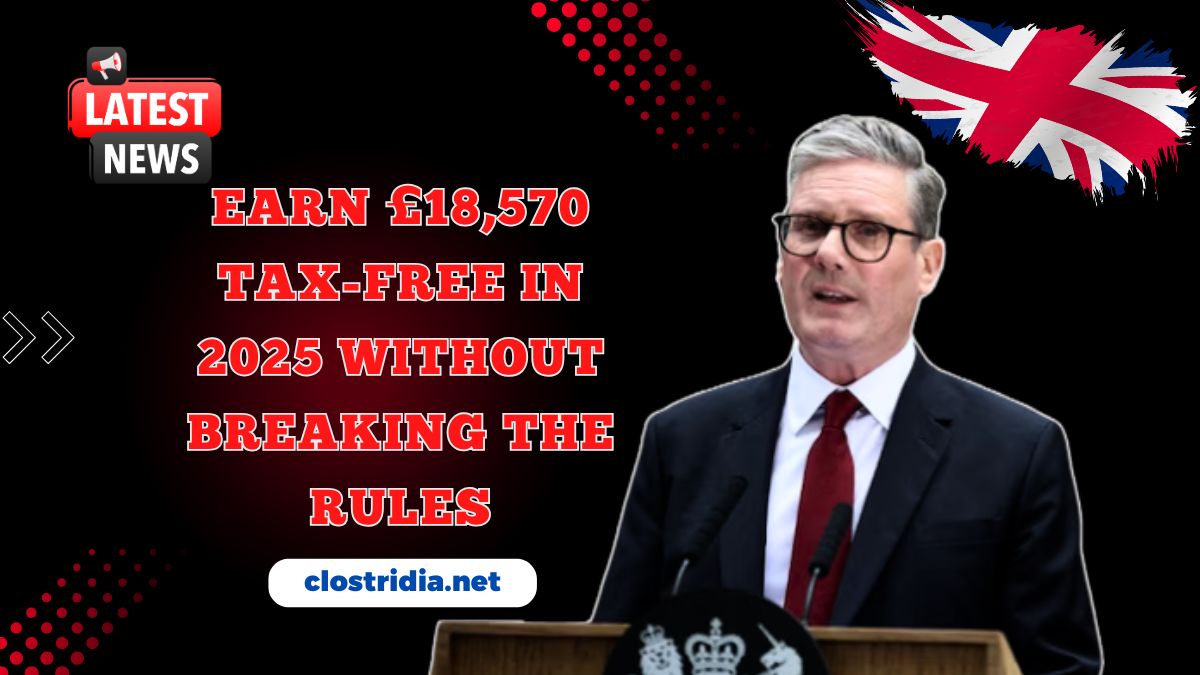In 2025, UK residents have a powerful opportunity to earn up to £18,570 tax-free, legally and completely within HMRC guidelines. This is not a direct DWP payment or benefit, but a clever use of three tax allowances designed to ease the financial burden for low-income earners, pensioners, and savers.
By combining the Personal Allowance, Starting Rate for Savings, and Personal Savings Allowance, many UK residents can enjoy substantial tax-free income—especially those with little to no earned income but with interest-yielding savings.
Breakdown of the £18,570 Tax-Free Allowance in 2025
| Allowance | Limit (2025/26) | Who Benefits |
|---|---|---|
| Personal Allowance | £12,570 | All taxpayers |
| Starting Rate for Savings | Up to £5,000 | Low earners with savings |
| Personal Savings Allowance | £1,000 | Basic-rate taxpayers (20%) |
| Total Tax-Free Potential | £18,570 | Low earners, retirees, and savers |
1. Personal Allowance – £12,570
This is the standard tax-free threshold for income from work, pensions, or benefits. If your total non-savings income (e.g. salary, state pension) is £12,570 or less, you pay no income tax.
2. Starting Rate for Savings – Up to £5,000
This allowance allows up to £5,000 in savings interest to be tax-free if your non-savings income is below £12,570.
Important:
- For every £1 your non-savings income exceeds £12,570, your Starting Rate is reduced by £1.
- If your income = £14,000, your Starting Rate = £3,000
- If your income = £17,570+, your Starting Rate = £0
3. Personal Savings Allowance – £1,000
This applies to basic-rate taxpayers (earning under £50,271), allowing up to £1,000 in savings interest to be tax-free regardless of income type.
If you are a higher-rate taxpayer, this drops to £500, and for additional-rate taxpayers, it is £0.
How to Get £18,570 Tax-Free in 2025
Let’s say you’re a retired pensioner with:
- £12,570 in pension income
- £6,000 in savings interest
Here’s how your income is tax-free:
- £12,570 is covered by your Personal Allowance
- £5,000 of savings interest is tax-free under the Starting Rate for Savings
- £1,000 of remaining interest is tax-free under the Personal Savings Allowance
Total income: £18,570 — all tax-free
Who Qualifies for This Tax-Free Income?
You may be eligible if:
- Your non-savings income is £12,570 or less
- You receive income from pensions, part-time work, or benefits like Universal Credit
- You have interest-bearing savings
Most relevant for:
- Retirees with modest pensions
- Part-time or low-income earners
- People with savings but no full-time employment
What Income Doesn’t Count?
- ISAs: Already tax-free, don’t count towards the £18,570
- Dividends: Taxed separately under the Dividend Allowance (£500 in 2025)
- Capital Gains: Covered under CGT, separate from income tax
- High earners: Those with total income over £17,570 start losing Starting Rate savings allowance
Tips to Maximise Your Tax-Free Allowances
- Calculate your total income from salary, pensions, and savings
- Use savings accounts that generate interest (fixed-rate, easy-access, etc.)
- Use the HMRC tax checker tool to verify your eligibility
- Spread withdrawals across tax years to stay under thresholds
- Consider joint accounts or savings in your spouse’s name to share allowances
The £18,570 tax-free income rule in 2025 is a smart financial strategy, not a DWP handout. If you fall within the right income bracket and structure your finances properly, you can enjoy zero tax liability on nearly £19,000 of income.
This is especially beneficial for pensioners, part-time workers, and those living on interest from savings. Check your income levels, plan accordingly, and keep more of what you earn.
FAQs
Is this a direct DWP payment or benefit?
No, it’s not a cash benefit. It’s a tax-free income strategy using HMRC tax allowances.
Who is eligible for the full £18,570 tax-free?
Low-income earners with less than £12,570 in non-savings income and up to £6,000 in interest from savings.
What happens if I earn more than £18,570?
Any income above the combined tax-free limits will be subject to income tax at basic, higher, or additional rates depending on your earnings.

